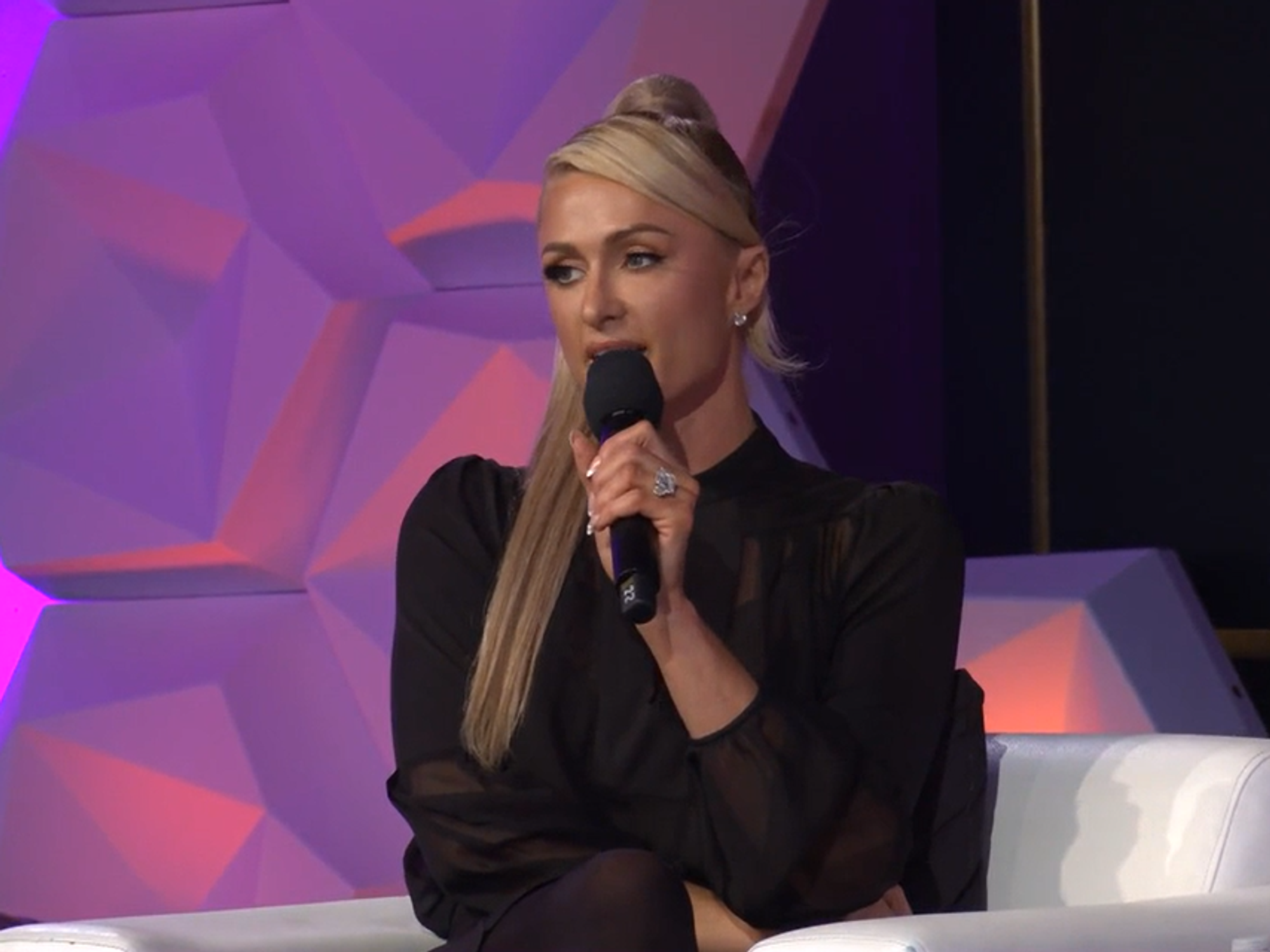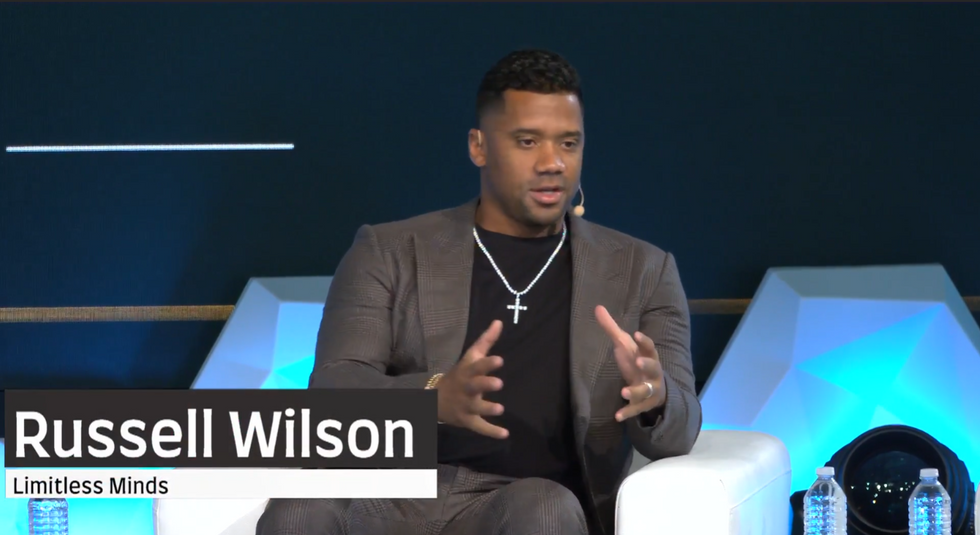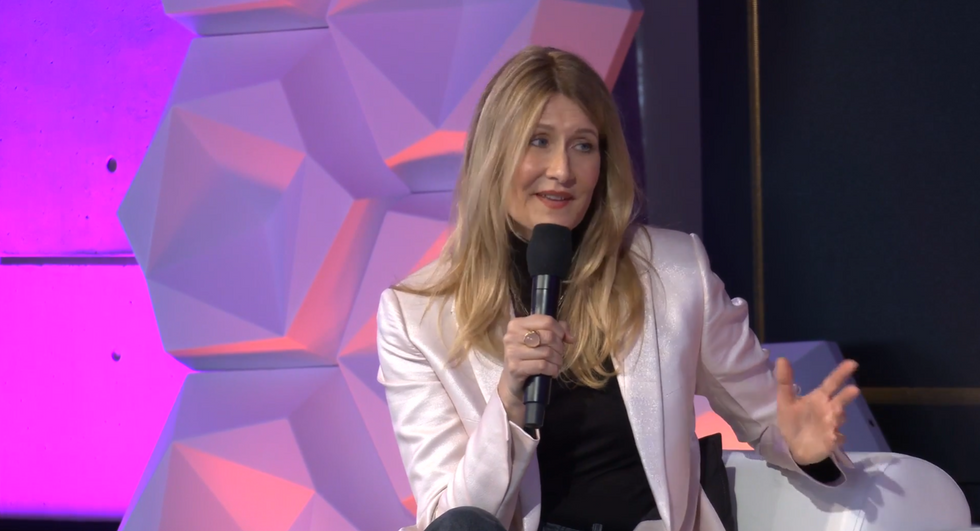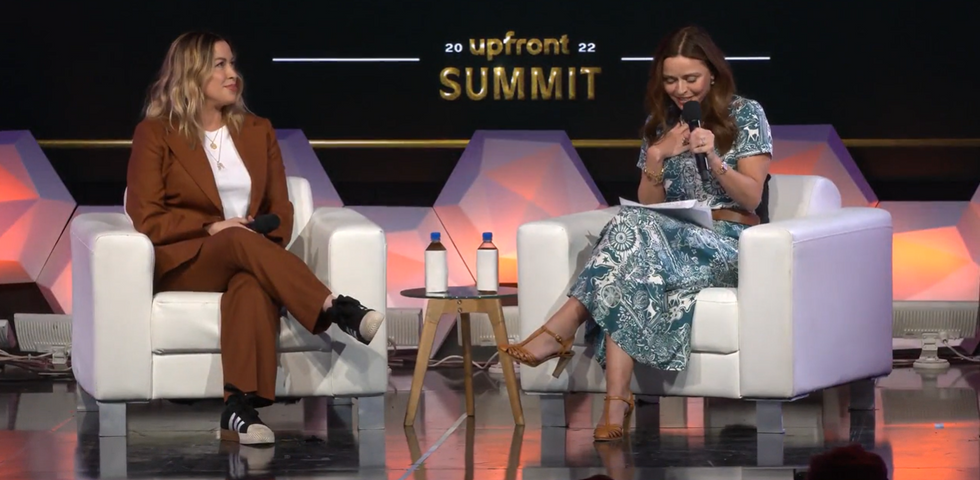VCs and A-List Celebrities Merge at This Year's Upfront Summit in Downtown LA
Samson Amore is a reporter for dot.LA. He holds a degree in journalism from Emerson College. Send tips or pitches to samsonamore@dot.la and find him on Twitter @Samsonamore.

Sign up for dot.LA's daily newsletter for the latest news on Southern California's tech, startup and venture capital scene.
After taking last year off due to the pandemic, the Upfront Summit—the blowout venture capital conference staged by Santa Monica-based venture firm Upfront Ventures—was back with a bang this week. And befitting one of Los Angeles’ biggest VC industry events, the stars were out in full force at the Banc of California Stadium—including an Oscar-winning actress, multiple Grammy Award-winning musical artists and a Super Bowl-winning NFL quarterback.
The event kicked off Tuesday morning with a conversation with Issa Rae, the creator and star of the hit HBO series “Insecure,” who discussed her efforts to invest wealth back into her native South Los Angeles. An active angel investor, Rae has backed the likes of coffee chain Hilltop Coffee + Kitchen and skincare startup Topicals. “I definitely want to be known as someone who provided opportunities, but also created an infrastructure for others to do the same,” she said.
But it was Wednesday’s agenda that was packed with most of the event’s celebrities. First off was Seattle Seahawks quarterback Russell Wilson; joined onstage by his brother, Harry, the pair plugged their brain-training startup, Limitless Minds, by talking up the importance of mental conditioning in athletic training regimens. Russell Wilson—who also co-founded the Jeff Bezos-backed mobile gaming app Tally—added that he chooses to back companies much like he would choose a team to compete alongside.

“Who you have around you—I think that's a really critical part of allowing your mind to be at the highest, the most prestigious level it could possibly be,” Wilson said.
Next up was Oscar winner and “Big Little Lies” star Laura Dern, an active venture investor who discussed how her personal values of uplifting women and protecting the environment inform her investment strategy. Dern has backed the likes of organic baby formula startup Bobbie as well as UNest, a North Hollywood-based savings app for parents.
Dern said she’s passionate about inspiring other women to invest, since she felt excluded from conversations about money when growing up. “I was raised always talking about art, but I think as a girl, no one was talking to me about money,” Dern mused.

Iconic rapper LL Cool J was also in the house to discuss his lengthy career and what he looks for when working with founders. As an angel investor, the rap mogul has backed the Black-led workflow management software Forethought through multiple rounds.
LL weaved a typically colorful analogy when discussing who he chooses to collaborate with in the venture world, as well as the VC industry’s need to diversify its ranks. “I don’t care what color the cat is—I just need a cat who can catch rats,” he said. “I just need a cat who is competent, and there are competent cats of all colors. So let’s get all the best cats and make this industry look more like the world.”
The Wednesday afternoon session saw socialite, influencer and cryptocurrency advocate Paris Hilton take the stage on a Web3-focused panel moderated by her husband, M13 co-founder Carter Reum. Hilton said she was drawn to crypto after having dinner with Ethereum’s founders in 2017; she subsequently minted her first NFT in 2019, and has since become a prolific mover in the space. The “Simple Life” star is also eyeing the metaverse after launching a virtual playground called “Paris World” in collaboration with game platform Roblox. “Paris thinks anything we're doing in real life, we'll [soon] be doing in the metaverse,” Reum quipped.

The summit was closed by seven-time Grammy winner Alanis Morissette, who discussed how she views her creative process. While short on venture investments, Morrisette described herself as a “chief empathy officer.”
“Whether we’re doing artwork, or coming up with an activism plan that will dovetail with a tour, it has to be something I’ll jump out of bed for in the morning—or else it’ll fall flat,” she said.
Amid a hectic day of panels and networking at Upfront, Morissette lauded the importance of resting and reseting one’s mental state when pursuing any endeavor. “Some of the best ideas I come up with are when I walk away from something that’s being asked,” she noted.
One A-list star who billed on the conference’s agenda yet absent on Wednesday was Natalie Portman. The Oscar-winning actress skipped the event due to illness, Upfront said.
- Issa Rae Kicks Off Upfront Summit With An Ode to South LA - dot.LA ›
- a16z's Andrew Chen on on Gaming and Online Dating - dot.LA ›
- Bessemer's Elliott Robinson on Diversity in Venture Capital - dot.LA ›
- Jeffrey Katzenberg Defends Quibi Failings, NFT Investments - dot.LA ›
- Hollywood Producer Brian Grazer at the Upfront Summit - dot.LA ›
Samson Amore is a reporter for dot.LA. He holds a degree in journalism from Emerson College. Send tips or pitches to samsonamore@dot.la and find him on Twitter @Samsonamore.




 Image Source: Skyryse
Image Source: Skyryse
 Image Source: Northwood Space
Image Source: Northwood Space